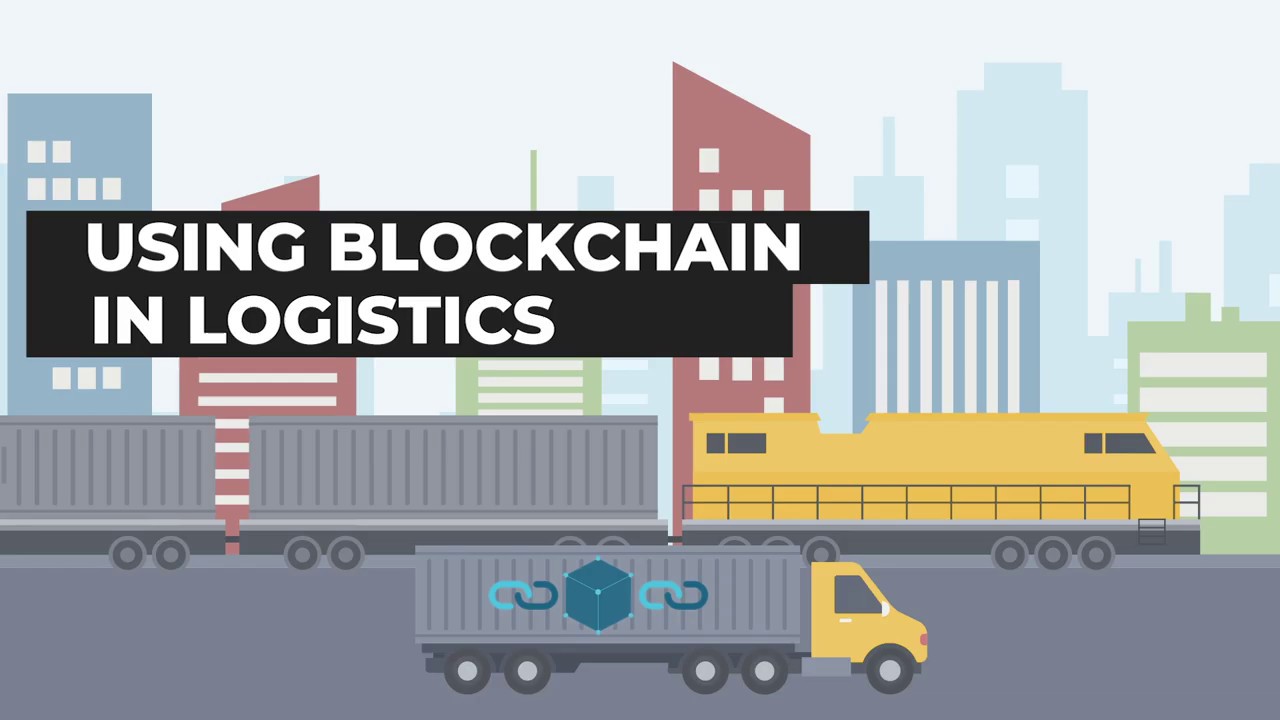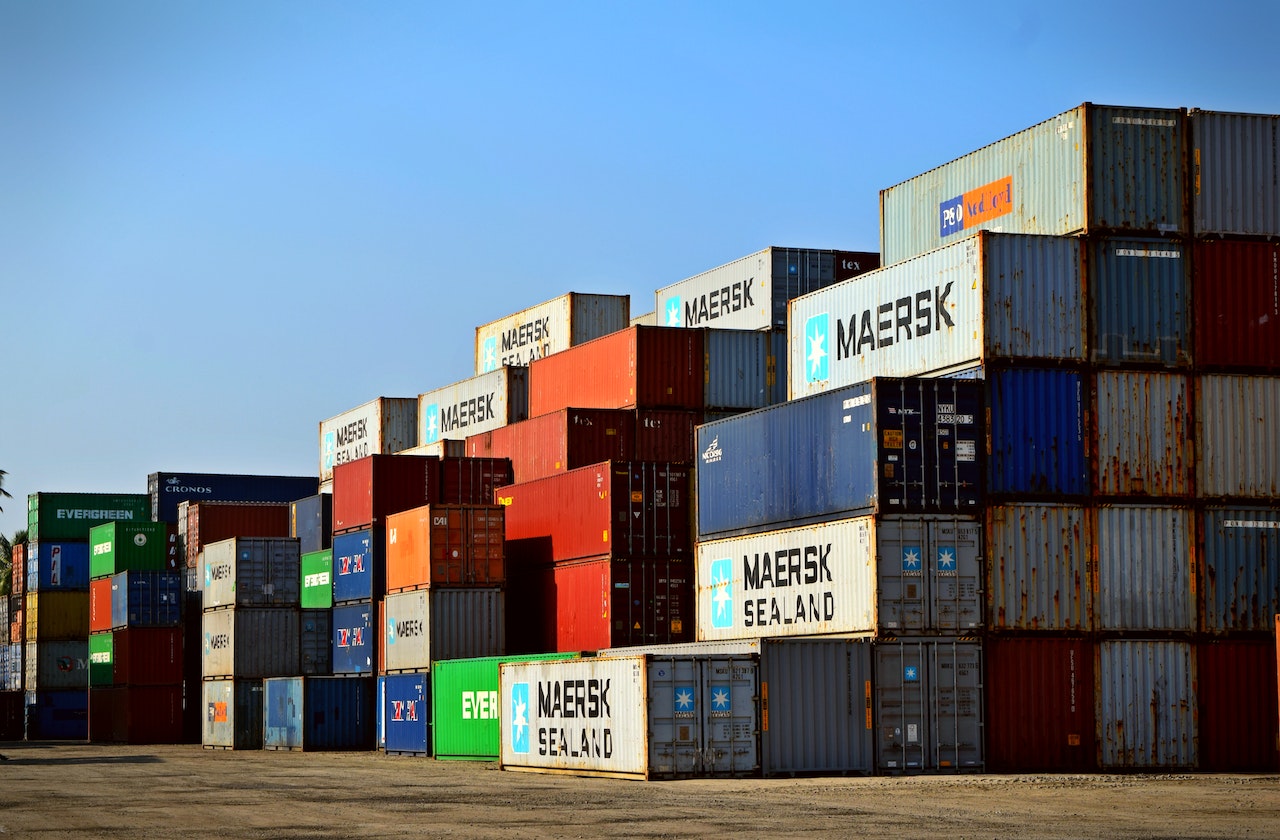Understanding Cryptocurrency And Its Use In The Logistics And Supply Chain Industry
Understanding cryptocurrency and its use in the logistics and supply chain industry has been making headlines in recent years due to its disruptive potential in various industries, including finance, healthcare, and real estate But its use in the logistics and supply chain industry is just starting to gain traction.
Author:James PierceReviewer:Camilo WoodMar 07, 20230 Shares225 Views

Understanding cryptocurrency and its use in the logistics and supply chainindustry has been making headlines in recent years due to its disruptive potential in various industries, including finance, healthcare, and real estate
But its use in the logistics and supply chain industry is just starting to gain traction.
Cryptocurrency is a digital or virtual currency that uses cryptography for security and operates independently of central banks. It is decentralized, meaning that it is not controlled by any government or financial institution.
In this article, we will explore what cryptocurrency is and how it can be used in the logistics and supply chain industry.
What Is Cryptocurrency?
A cryptocurrency is a form of digital or virtual currency that uses cryptography for security. It operates independently of central banks and is decentralized, meaning that it is not controlled by any government or financial institution.
Cryptocurrencies use blockchain technology, a distributed ledger that records transactions across a network of computers. The blockchain allows for secure, transparent, and tamper-proof transactions.
The most well-known cryptocurrency is Bitcoin, which was created in 2009 by an unknown person or group using the pseudonym Satoshi Nakamoto.
Since then, thousands of other cryptocurrencies have been created, each with its own unique features and use cases. Some other popular cryptocurrencies include Ethereum, Ripple, and Litecoin.
Understanding Cryptocurrency And Its Use In The Logistics And Supply Chain Industry
The logistics and supply chain industry is ripe for disruption, and cryptocurrency has the potential to do just that. Here are some ways that cryptocurrency can be used in the logistics and supply chain industry:
Payment Transactions
One of the most significant use cases for cryptocurrency in the logistics and supply chain industry is payment transactions. Cryptocurrencies enable quick and secure payments that are not subject to the same restrictions as traditional currencies.
Payment transactions can be done without the need for intermediaries like banks, which can speed up the process and reduce transaction costs.
For example, imagine a company in the United States wanting to pay a supplier in China. With traditional payment methods, the transaction could take several days to process, and there may be high fees involved.
With cryptocurrency, the transaction can be completed almost instantly, and the fees are typically lower than with traditional methods.
Smart Contracts
Smart contracts are self-executing contracts with the terms of the agreement between buyer and seller being directly written into lines of code.
Smart contracts can be used in logistics and supply chains to automate processes, such as payment and delivery, based on certain conditions being met.
For example, a smart contract could be used to automate the release of payment for a shipment once it has been delivered and verified by the recipient. This would eliminate the need for intermediaries like banks and reduce the risk of fraud.
Supply Chain Transparency
Cryptocurrency and blockchain technology can also be used to increase supply chain transparency.
By recording transactions on a distributed ledger, all parties involved in a supply chain can have real-time access to information about the movement of goods, from the manufacturer to the end consumer. This can help to prevent fraud and improve traceability.
For example, a company could use blockchain technology to track the movement of a product from the factory to the warehouse to the store.
All parties involved in the supply chain would be able to see where the product is at any given time, which could help to prevent theft or loss.
Cross-Border Transactions
Cross-border transactions can be costly and time-consuming, with high fees and long wait times. Cryptocurrency can help to streamline cross-border transactions, making them quicker and more cost-effective.
For example, a company in the United States could pay a supplier in Europe using cryptocurrency. The transaction would be completed almost instantly, and the fees would be much lower than traditional payment methods.
Benefits Of Using Cryptocurrency In The Logistics And Supply Chain Industry
The use of cryptocurrency in the logistics and supply chain industry provides several benefits, including:
- Faster and Cheaper Transactions: Cryptocurrency transactions can be processed much faster and cheaper than traditional banking methods, as they do not require intermediaries like banks to verify and process the transactions.
- Improved Transparency and Traceability: Cryptocurrency transactions are recorded on a distributed ledger, which provides transparency and traceability throughout the supply chain. This helps to prevent fraud and reduces the risk of counterfeit goods.
- Increased Security: Cryptocurrency transactions are secured using cryptography and distributed ledger technology, which makes them less vulnerable to cyber attacks and hacking.
- Automating Payment Processes:Cryptocurrencies can be programmed to automatically trigger payments when certain conditions are met. This can help to reduce manual intervention and improve efficiency.
Examples Of Cryptocurrency Use In Logistics And Supply Chain Industry
Several companies in the logistics and supply chain industry are already using cryptocurrency and blockchain technology to improve their operations. Here are some examples:
- Maersk:Maersk, the world's largest container shipping company, is using blockchain technology to track the movement of cargo in real-time, reduce paperwork and automate the documentation process.
- UPS: UPS is working on a blockchain-based platform called Blockchain in Transport Alliance (BiTA), which aims to create a secure and transparent supply chain ecosystem.
- FedEx: FedEx is also exploring blockchain technology to improve its supply chain operations, particularly in the areas of logistics and transportation.
Regulatory Landscape For Cryptocurrency In Logistics And Supply Chain Industry
The regulatory landscape for cryptocurrency in the logistics and supply chain industry is still evolving. While some countries have embraced cryptocurrency and blockchain technology, others have taken a cautious approach.
The lack of uniformity in regulatory frameworks can create uncertainty and increase the risk for companies operating in the global market.
However, some countries are taking steps to create a more favorable environment for cryptocurrency and blockchain technology.
For example, Switzerland has become a hub for cryptocurrency and blockchain technology, with several companies and startups setting up operations there due to its favorable regulatory framework.

How will blockchain be used in supply chain logistics ? | Zmodal
Future Of Cryptocurrency In The Logistics And Supply Chain Industry
The future of cryptocurrency in the logistics and supply chain industry looks promising.
As more companies adopt blockchain technology, the use of cryptocurrency is likely to become more widespread. This will help to improve efficiency, reduce costs, and increase transparency and traceability throughout the supply chain.
However, the future of cryptocurrency will depend on several factors, including regulatory frameworks, technological advancements, and market conditions.
While there are still some challenges and risks associated with the use of cryptocurrency, the potential benefits make it a promising tool for the logistics and supply chain industry.
People Also Ask
How Does Blockchain Technology Support The Use Of Cryptocurrency In The Logistics And Supply Chain Industry?
Blockchain technology provides a secure and decentralized ledger that can be used to store and verify transactions, increasing transparency and trust in supply chain transactions.
What Are The Challenges Of Using Cryptocurrency In The Logistics And Supply Chain Industry?
The challenges of using cryptocurrency in the logistics and supply chain industry include regulatory and legal issues, volatility, and lack of standardization.
How Can Cryptocurrency And Blockchain Technology Be Integrated Into The Existing Supply Chain Infrastructure?
Cryptocurrency and blockchain technology can be integrated into the existing supply chain infrastructure through partnerships and collaborations with logistics and tech companies.
What Is The Future Of Cryptocurrency In The Logistics And Supply Chain Industry?
The future of cryptocurrency in the logistics and supply chain industry is promising, with the potential for increased adoption and integration with existing technologies to improve efficiency and transparency in the supply chain.
Conclusion
Understanding cryptocurrency and its use in the logistics and supply chain industry has the potential to revolutionize the logistics and supply chain industry.
It can be used to improve payment transactions, automate processes with smart contracts, increase supply chain transparency, and streamline cross-border transactions.
By using cryptocurrency and blockchain technology, companies can reduce transaction costs, increase efficiency, and improve the overall speed and security of their supply chains.
Jump to
What Is Cryptocurrency?
Understanding Cryptocurrency And Its Use In The Logistics And Supply Chain Industry
Benefits Of Using Cryptocurrency In The Logistics And Supply Chain Industry
Examples Of Cryptocurrency Use In Logistics And Supply Chain Industry
Regulatory Landscape For Cryptocurrency In Logistics And Supply Chain Industry
Future Of Cryptocurrency In The Logistics And Supply Chain Industry
People Also Ask
Conclusion

James Pierce
Author

Camilo Wood
Reviewer
Latest Articles
Popular Articles
